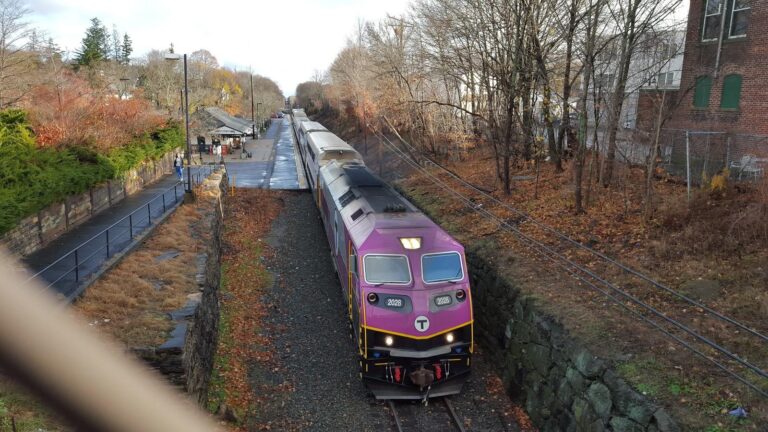The Massachusetts Bay Transportation Authority (MBTA) has scheduled a series of public hearings to address proposed fare increases aimed at adjusting transit costs across its network. These hearings come as part of ongoing efforts to balance fare affordability with the financial sustainability of services such as buses, subways, commuter rails, ferries, and The RIDE. The proposals, which include significant changes affecting multiple fare categories, have sparked interest and concern among riders and advocacy groups alike. Stakeholders are invited to participate in the discussions, providing an chance for the public to weigh in on the MBTA’s plans before any decisions are finalized.
Table of Contents
- Public Hearings Scheduled Across Greater Boston to Address MBTA Fare Increase Proposals
- Impact of Proposed Fare Hikes on Commuters and Low-Income Residents
- Expert Analysis on MBTA’s Financial Challenges and Fare Adjustment Necessities
- Community Recommendations for Balancing Affordability and Sustainable Transit Funding
- In Conclusion
Public Hearings Scheduled Across Greater Boston to Address MBTA Fare Increase Proposals
Residents and commuters throughout Greater Boston are invited to participate in a series of public hearings organized to discuss the MBTA’s proposed fare increase plans. These sessions will provide a critical platform for stakeholders to voice their support, concerns, or alternative suggestions directly to MBTA officials. The hearings are scheduled across multiple locations to ensure accessibility and encourage broad community engagement.Attendees are encouraged to prepare feedback on the potential impacts, including affordability and service changes.
Key details to note for participation include:
- Dates and venues spread across various MBTA districts to accommodate diverse commuter populations
- Opportunities for both in-person and virtual testimonies to maximize public involvement
- Submission deadlines for written comments following each hearing event
With the MBTA emphasizing openness and community partnership, these hearings represent a decisive moment in shaping the future of Boston’s transit funding and fare structure. Public input will be instrumental in guiding final decisions that balance operational sustainability with rider affordability.
Impact of Proposed Fare Hikes on Commuters and Low-Income Residents
Many commuters are facing anxiety as proposed fare hikes threaten to increase daily travel costs across MBTA services. For regular riders,especially those depending on the subway,bus,and commuter rail for work and essential activities,even modest fare increases could considerably strain household budgets.The upcoming adjustments come amid ongoing inflationary pressures, making affordability a central concern for a wide spectrum of users.
Low-income residents stand at a critical crossroads due to these changes. While the MBTA recently expanded its reduced fare program to assist riders with limited means-offering 50% discounted fares on one-way trips and passes-advocates worry this may not fully offset the impact of fare hikes for all vulnerable populations. Key points of contention include:
- The adequacy of reduced fare eligibility criteria
- Potential increases in cost for those not qualifying for discounts
- Accessibility challenges that may be worsened by higher travel expenses
Public hearings aim to bring these voices into focus, providing a platform for transparent dialogue about balancing operational needs with equitable transit access.
Expert Analysis on MBTA’s Financial Challenges and Fare Adjustment Necessities
Financial experts underscore that the MBTA’s current economic predicament stems from a convergence of rising operational costs, deferred maintenance, and fluctuating ridership patterns, especially in a post-pandemic landscape. With expenses outpacing revenues, the transit authority faces a narrowing margin to sustain quality service and infrastructure improvements. Analysts emphasize that without strategic fare adjustments, the MBTA risks exacerbating budget deficits, potentially leading to service reductions or deferred capital investments that could further erode system reliability.
Key points supporting the fare hike necessity include:
- Inflation-driven cost increases in fuel, labor, and maintenance components.
- Investment requirements for upgrading aging equipment and enhancing safety protocols.
- Ensuring equitable funding by balancing fare revenues with municipal and state subsidies.
- Maintaining service levels to meet growing commuter demand amid regional expansion.
Experts advocate for carefully calibrated increases paired with targeted affordability programs to mitigate impacts on low-income riders, aiming to sustain both financial health and public accessibility.
Community Recommendations for Balancing Affordability and Sustainable Transit Funding
Community members attending the recent public hearings voiced strong support for maintaining fare affordability, particularly for low-income riders and essential workers. Many urged the MBTA to implement targeted discounts and expanded fare capping to ease the financial burden. Additionally,residents emphasized the importance of transparent communication around how fare revenue directly supports improvements in service reliability,safety,and accessibility. Suggestions included:
- Enhanced subsidized programs for vulnerable populations
- Periodic review of fare structures tied to income levels
- Expanded off-peak discounts to encourage ridership outside peak hours
Balancing fare affordability while ensuring sustainable transit funding remains a critical challenge for the MBTA. Community advocates proposed exploring diversified funding streams, such as increased state and federal support, congestion pricing, and partnerships with local employers to share transit costs. They highlighted that sustainable investment is essential for modernizing infrastructure and expanding service coverage. Key community recommendations include:
- Incremental fare adjustments aligned with measurable service enhancements
- Public engagement initiatives to foster rider trust and accountability
- Investment in innovative payment systems to improve efficiency and equity
In Conclusion
The upcoming public hearings represent a critical opportunity for riders, community members, and stakeholders to voice their opinions on the proposed MBTA fare hikes.As the authority weighs these changes, input from the public will play a key role in shaping the future of transit affordability and accessibility in the region. Further updates will follow as the process continues.

